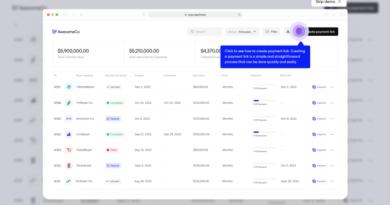Dandelion co-founder is back to help you electrify your home for less
In the nearly 20 years that James Quazi has been a climate tech founder and operator, he’s seen a lot. From solar to geothermal, energy audits to energy storage, he’s had a front row as homeowners have sought to slash their energy use.
He’s also been able to observe what makes those startups successful. “You have to be able to model energy systems to a high degree of accuracy, and you have to be able to finance things,” Quazi told TechCrunch. “It just always comes up.”
He’s taken those observations to heart, starting a company that hopes to speed the electrification of homes throughout the U.S. by helping homeowners choose and finance the projects that make the most sense for them. Called Balto Energy, the Southern California-based startup has been operating stealthily, and Quazi recently shared details on the new venture exclusively with TechCrunch. To get off the ground, the startup raised $1 million from KDX, Leap Forward Ventures and others.
Most recently, Quazi was living quasi-retired, having served as CTO at Dandelion, the home geothermal startup that spun out of Alphabet’s X division; before that he was an executive at SolarCity. But after he started studying a recent change in California’s solar power incentives for homeowners, he couldn’t stay out of the game.
The new regulations, known as NEM 3.0, lengthened the amount of time it takes for solar panels to pay off, but it significantly reduced the payoff period for solar panels when installed alongside a battery. The goal was to encourage consumers to store more of their solar power for later, but it had the unintended consequence of dragging down California’s solar market.
To Quazi, the solution to installers’ woes came quickly to him: They needed to branch out beyond just solar panels. Many have also begun installing batteries, yet Quazi knew they’d also have to consider adding to their roster other electrification projects like electric vehicle chargers, heat pumps and heat pump water heaters. “We found that some of those contractors are interested in doing other portions of the work,” he said.
But solar panels are one product with a very straightforward sales pitch: They’ll save customers money on their electric bills. Homeowners could stand to save even more money with heat pumps, too, but the math behind the pitch gets a lot more complicated.
Today, most solar installers haven’t ventured beyond rooftop panels and the occasional battery. That has forced homeowners to turn to a menagerie of contractors, from electricians to plumbers and HVAC specialists. To fully electrify, they have to be willing to serve as a de facto general contractor, envisioning each job as a part of a system.
“We still don’t have, like, a great tool that coaches homeowners through what that experience would be,” Quazi said. “There isn’t a holistic view of it.”
Quazi hopes that Balto is that tool. Many homeowners’ electrification journeys start with solar, which is where Balto is starting, too. For homeowners, the technology is mature, and the financial benefits are widely known. For Balto, there are a large number of solar installers who might benefit from additional work outside of installing new panels; the startup will charge them a fee for access to the platform, which includes various sales tools. In the future, it’ll be available to other trades. “We were very adamant that we want a path that is agnostic of any contractor,” Quazi said.
Balto functions as a sort of a decision tree for homeowners to help them decide where they’d like to start and which projects they’d like to tackle and when. Are they only interested in saving money? Then a relatively simple solar-plus-battery installation with an EV charger might be the answer. Or maybe they want resiliency during extreme weather or natural disasters? In that case, they also might want to electrify more of their home, including heating and cooling, hot water, and even cooking.
“You have to help people understand what the options are and what’s the best one for them,” Quasi said. To provide recommendations that make sense, Balto models energy usage for a home using customer-provided utility data.
All those projects, though, can be expensive propositions. Solar panels alone tend to cost tens of thousands of dollars; the same is true of heat pumps. An all-in electrification plan would be far more. That’s a hefty sum that most homeowners don’t have, and with interest rates high, they wouldn’t be jazzed about financing it, either.
Quazi thinks he can ease the burden by offering a form of financing that he said is not a loan. “For a residential project that’s financed through a loan, a lot of benefits actually fall on the ground. There’s a bunch of trailing things that we think we can monetize,” he said, including depreciation and renewable energy credits that it sells to other companies.
That’s because Balto would be owning the solar assets for a period of time, making it the entity that receives the credits. Some of its revenue would come from that revenue stream, and it would direct another portion of it toward reducing the interest rate on the financial instrument it offers customers. “While you might take out a loan today [for solar], and if that loan is 20 years, the interest rate could be 12%. We’re looking at half that or less,” Quazi said.
We’ll know in a few years if Quazi is right, that creative financing is what’s really needed to speed the electrification of American homes. He’s hoping that, when that time comes, “infrastructure that pumps combustible gases in the people’s homes” will fall out of favor. “It’s one of the things we’ll look back and be like, ‘That was crazy. We shouldn’t have done that.’”




